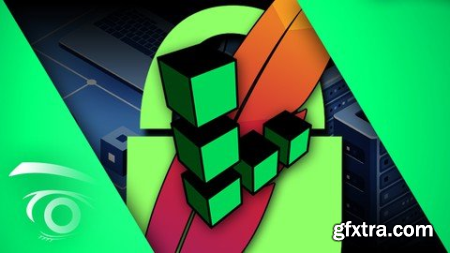
Published 3/2023MP4 | Video: h264, 1280x720 | Audio: AAC, 44.1 KHzLanguage: English | Size: 2.35 GB | Duration: 5h 36m
Cloud Service Models | IaaS | Linode Basics | TFA | SSH | Linux | Ubuntu | LAMP Stack | DBMS | Firewalls | SSL What you'll learn Cloud Computing Foundations Cloud Computing Service Models (IaaS, PaaS, SaaS) Linode Account Setup (TFA, SSH, LISH) Linux Foundations (Filesystem, Directory Commands, User Accounts) LAMP Stack Installation and Configuration Server Security (Network & Software Firewalls, UFW, Custom Ports) SSL Certificates (Let's Encrypt Installation) Requirements Basic Computer Skills Description This course is designed to provide a comprehensive introduction to cloud computing and the foundations of server security. We cover a range of topics, starting from an introduction to cloud computing and cloud service models to cloud server deployment and configuration using Linode. We also explore the foundations of Linux, LAMP stack installation and configuration, server security, and SSL certificates.The course bs with an introduction to cloud computing and the different service models available, such as Infrastructure as a Service (IaaS), Platform as a Service (PaaS), and Software as a Service (SaaS). This offers students a basic understanding of the different types of cloud services available along with various use cases.Next, the course delves into server deployment and configuration using Linode. Linode is a popular cloud hosting provider that offers a range of services, including virtual private servers (VPS), storage, and networking. Students will learn how to deploy and configure a virtual instance and use it to host a website or application using LAMP Stack. LAMP stands for Linux, Apache, MySQL, and PHP and is a popular stack used to build dynamic websites and web applications. Students will learn how to install and configure each component of the stack and use it to create a functional website or web application. The course will then cover Linux foundations, where we explore the Linux file system, basic commands, and user accounts.In the following section students explore server security, including best practices for securing a server and common security threats. Students will learn about firewalls, intrusion detection and prevention systems, and how to secure sensitive data. We will demonstrate how to setup custom ports, hardware firewalls, and software firewalls using UFW.Finally, the course will cover installing and configuring SSL certificates. SSL (Secure Sockets Layer) is a standard security technology for establishing an encrypted link between a web server and a browser. Students will learn how to obtain, install, and configure an SSL certificate to secure their website or web application.This course is well suited for anyone interested in cloud computing and server administration. By the end, student will be proficient with navigating Linode, while deploying and configuring remote instances using the latest in cloud technology. If this sounds exciting, then hit the enol button and let’s get started. Overview Section 1: Introduction to Cloud Computing Lecture 1 Intro to Cloud Computing Lecture 2 Benefits of Cloud Computing Lecture 3 Cloud Computing Service Models Section 2: Cloud Server Deployment on Linode Lecture 4 Linode Account Setup Lecture 5 Exploring the Linode Cloud Manager Lecture 6 Enabling TFA on Linode Lecture 7 Deploying a Linode Virtual Instance Lecture 8 Exploring the Linode Instance Dashboard Lecture 9 Remote Server Admin via SSH Lecture 10 Password vs SSH Key Authentication Lecture 11 SSH Key Pair Authentication on Windows Lecture 12 SSH Key Pair Authentication on MacOS Lecture 13 Connecting with LISH Lecture 14 Adding SSH Public Keys to Linode Section 3: Linux Foundations Lecture 15 Introduction to Linux Lecture 16 The Linux Filesystem Lecture 17 Linux Maintenance Commands Lecture 18 Linux Directory Commands[Part 1] Lecture 19 Linux Directory Commands[Part 2] Lecture 20 Ubuntu Basic Server Configuration Lecture 21 Introduction to User Accounts Lecture 22 Creating a Non-Root Account Lecture 23 Securing the New User Account Lecture 24 Disabling Root User Access and Password Authentication Section 4: LAMP Stack Installation and Configuration Lecture 25 Installing LAMP Stack on Ubuntu via Command Line Lecture 26 Installing LAMP Stack using Linode Marketplace Lecture 27 Testing PHP on Apache Lecture 28 Testing MariaDB Connection from PHP[Part 1] Lecture 29 Testing MariaDB Connection from PHP[Part 2] Lecture 30 Remote Server Administration using Linode GLISH Section 5: Foundations of Server Security Lecture 31 Introduction to Server Security Lecture 32 Introduction to Firewalls Lecture 33 Network Firewalls Lecture 34 Securing SSH with a Network Firewall Lecture 35 Strict Network Firewall Policy Lecture 36 Hosted Software Firewalls UFW Section 6: Introduction to SSL Certificates Lecture 37 Introduction to SSL Certificates Lecture 38 Traditional vs. Digital Certificates Lecture 39 Types of SSL Certificates Lecture 40 How SSL Certificates Work Lecture 41 Obtaining a SSL Certificate Lecture 42 Introduction to Let's Encrypt Section 7: Digital Ocean Server Setup Lecture 43 Preparation Lecture 44 Domain Name Server Administration Lecture 45 Introduction to Digital Ocean Lecture 46 Droplet Configurations Lecture 47 Creating a Droplet Lecture 48 Install PuTTY/Teal and Connect Lecture 49 Install LAMP Stack - Apache, MySQL, PHP Lecture 50 Configure DNS on Digital Ocean Lecture 51 Droplet Basic Configurations Section 8: SSL Certificate Installation Lecture 52 Installing Let's Encrypt Lecture 53 SSL Certificate Status Reports Lecture 54 Redirect all Domain Variations to HTTPS Lecture 55 Auto Renewal with CRON jobs Students interested in Cloud Computing,Students interested in Remote Server Deployment and Configuration,Students interested in Server Security,Students interested in the Foundations of Linux,Students interested in LAMP Stack Installation and Configuration,Students interested in how SSL Certificates Works,Students interested in SSL Certificate Installation and Configuration HomePage:
TO MAC USERS: If RAR password doesn't work, use this archive program:
RAR Expander 0.8.5 Beta 4 and extract password protected files without error.
TO WIN USERS: If RAR password doesn't work, use this archive program:
Latest Winrar and extract password protected files without error.


